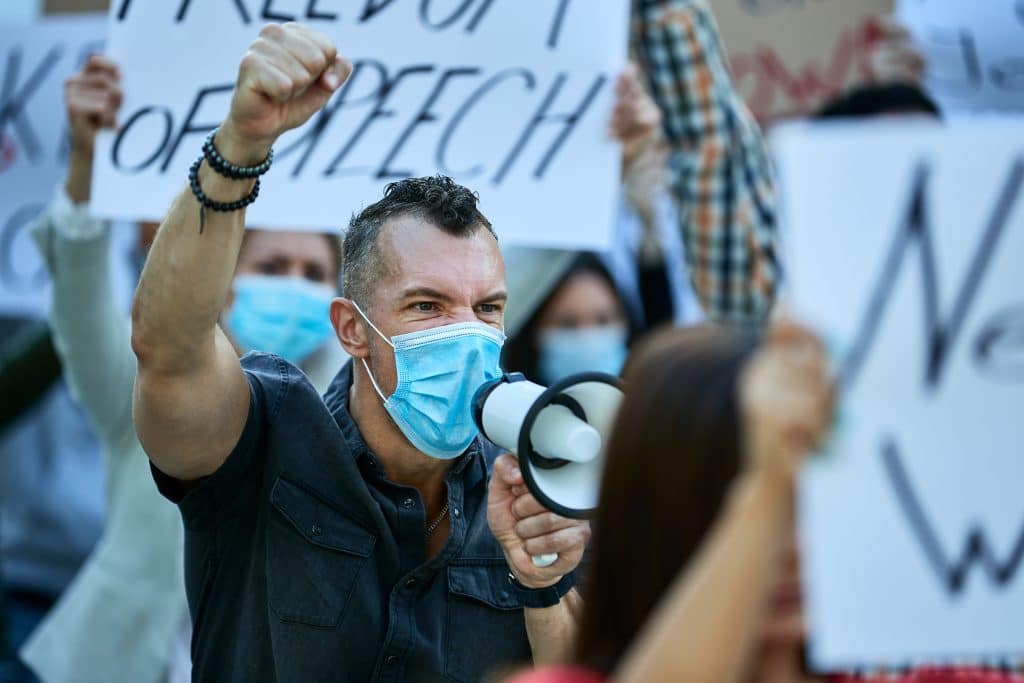Medicare funding cuts protests spark nationwide debate

Anúncios
Medicare funding cuts directly affect access to healthcare services for millions of beneficiaries, leading to longer wait times, higher out-of-pocket costs, and reduced availability of essential treatments.
Medicare funding cuts protests have emerged as a critical topic across the nation, capturing the attention of policymakers and citizens alike. Have you ever wondered how these cuts might affect you or your loved ones? In this article, we delve into the implications and growing unrest surrounding this issue.
Anúncios
Understanding Medicare funding cuts
Understanding Medicare funding cuts is essential in today’s healthcare landscape. These cuts affect millions, leading to serious implications for both services and beneficiaries.
The first step in grasping this complex issue is to know what Medicare funding cuts entail. Funding cuts often occur when government budgets are tight, resulting in reduced financial support for healthcare programs. This can impact not only the facilities that provide care but also the quality and availability of services for patients.
What Causes Medicare Funding Cuts?
Several factors contribute to these funding cuts. Among them are:
Anúncios
- Budgetary constraints within the federal government.
- Increased healthcare costs outpacing available funding.
- Political decisions affecting healthcare allocations.
- Changing demographics and aging populations increasing demand.
Understanding these causes helps clarify why significant cuts may occur and how they can ripple through the healthcare system.
Impact on Beneficiaries
The effects of Medicare funding cuts on beneficiaries can be profound. Many beneficiaries may experience limited access to care and longer wait times for essential services. Reduced funding means fewer healthcare providers will be available, leading to potential shortages in critical areas.
Moreover, beneficiaries may face higher out-of-pocket costs or diminished service options. Some essential programs may find resources dwindling, jeopardizing care quality and availability. This situation could result in vulnerable populations struggling to secure necessary treatments.
As discussions around Medicare funding cuts continue, understanding these underlying issues helps foster informed conversations. Awareness can catalyze advocacy efforts and potentially influence future policies aimed at protecting Medicare beneficiaries.
Impact of funding cuts on beneficiaries
The impact of funding cuts on beneficiaries is a critical concern in the healthcare landscape. Many individuals rely on programs like Medicare for their health needs, and cuts can lead to significant challenges. When funding decreases, the availability of essential services may also decline.
One of the first effects beneficiaries notice is a reduction in available healthcare providers. With fewer doctors and clinics accepting Medicare due to financial strains, patients may find it more difficult to secure care. This can lead to longer wait times for appointments, putting stress on patients who need timely medical attention.
Effects on Service Availability
Funding cuts can directly affect the range of services that beneficiaries can access. Some programs may be scaled back or eliminated altogether. This can include:
- Reduction in preventive care services.
- Limited access to specialized treatments.
- Fewer available hospital beds.
- Potential closures of community health centers.
As these services wane, health outcomes may worsen, especially for vulnerable populations. Patients may skip necessary check-ups or treatments due to unavailability, leading to more severe health issues.
Financial Burdens on Patients
In addition to service limitations, beneficiaries may face increased out-of-pocket costs. As providers grapple with funding limitations, they may shift more expenses to patients. This creates a challenging environment for those on fixed incomes, as they may struggle to afford medications and necessary treatments.
Moreover, the psychological toll of uncertainty can impact patients’ mental health. Many beneficiaries worry about their future healthcare options, leading to increased stress and anxiety.
Overall, the impact of funding cuts on beneficiaries underscores the need for sustained advocacy. Protecting these vital programs is essential for ensuring that all individuals have access to the healthcare they need.
Protests: Voices of the affected

Protests: Voices of the affected provide a powerful insight into the real people impacted by Medicare funding cuts. When funding becomes scarce, many beneficiaries find themselves struggling to get the care they need. These protests act as a platform for their stories and concerns.
Many of the voices you hear in these protests come from individuals who depend on Medicare for their healthcare. They often share personal stories about how funding cuts have affected their access to necessary services. For instance, a patient may speak about long wait times for medical appointments or difficulty obtaining life-saving medications.
Common Concerns Raised in Protests
During these events, several recurring themes emerge, highlighting the issues faced by beneficiaries. Some concerns include:
- Reduced access to essential treatments.
- Increased out-of-pocket expenses for healthcare services.
- Longer wait times for critical care.
- Fear of losing coverage entirely.
Each protest serves as a collective outcry for change. Participants often carry signs and chant messages demanding that their needs be prioritized. In this way, crowds create a sense of community and solidarity among those affected by healthcare policies.
The Role of Advocacy in Protests
Advocacy groups play a crucial role in organizing these protests. They help amplify the voices of those who might otherwise remain unheard. By rallying individuals together, these organizations aim to influence local and national policies. Their efforts focus on raising awareness about the impact of Medicare funding cuts and how these cuts directly affect individuals’ lives.
Through speeches and shared experiences, affected individuals highlight the emotional and physical toll that funding reductions can impose. As the protests gain media attention, they can gather support from the wider community, potentially leading to positive change.
The energy at these rallies is palpable, and the voices of the affected echo loudly in their pursuit of justice. They remind us all of the human cost behind policy decisions.
Government responses to protests
Government responses to protests regarding Medicare funding cuts play a vital role in shaping public policy. When faced with significant demonstrations, elected officials and policymakers must consider the voices of constituents who are passionate about healthcare access.
Often, government representatives will issue statements addressing the concerns raised at these protests. They may acknowledge the issues and express empathy towards affected individuals. However, the effectiveness of these responses can vary widely. Some representatives might promise to explore potential solutions, while others may remain noncommittal.
Common Government Responses
Responses from government officials can come in various forms, such as:
- Public speeches outlining proposed healthcare initiatives.
- Meetings with advocacy groups to discuss specific concerns.
- Legislation aimed at addressing the issues highlighted by the protests.
- Listening sessions involving community members affected by the cuts.
While some officials take active steps to engage and address the concerns, others may choose to downplay the urgency of the situation. This can lead to frustration among protesters who seek meaningful action.
The Impact of Legislative Action
In instances where governments are responsive, new legislation may emerge aimed at preventing future funding cuts or providing additional resources for Medicare. This could include measures to secure funding, improve access to care, or expand existing programs. When such legislation is enacted, it often arises as a direct response to the advocacy and mobilization seen during protests.
However, change does not always happen quickly. There’s often a lengthy legislative process involved, which can lead to feelings of disillusionment among those affected. Continuing advocacy and pressure from constituents remain essential in fostering ongoing dialogue with policymakers.
Ultimately, the dynamics between protests and government responses highlight the importance of civic engagement in ensuring comprehensive healthcare accessibility. The voices raised during protests serve not just to express grievances but to push for solutions that can benefit all stakeholders in the healthcare system.
Future of Medicare funding
The future of Medicare funding is a topic of significant concern and interest for millions of Americans. As healthcare needs continue to rise, understanding how funding will be allocated is crucial. Many stakeholders, including policymakers, healthcare providers, and beneficiaries, are deeply invested in these discussions.
One of the main challenges facing Medicare funding is the sustainability of the program. As the population ages, more individuals qualify for Medicare. This means the demand for services will likely increase, putting additional pressure on the funding structure. To address these challenges, policymakers may explore several options.
Potential Solutions for Sustainability
Several strategies could be considered to ensure that Medicare remains viable for future generations:
- Adjusting eligibility requirements to account for changing demographics.
- Enhancing funding through higher taxes or new revenue streams.
- Implementing cost-control measures within the healthcare system.
- Expanding preventive care to reduce long-term costs.
By evaluating these options, lawmakers can work towards a Medicare system that can sustain itself while continuing to meet the needs of beneficiaries.
Impact of Political Decisions
The future of Medicare funding is also heavily influenced by political decisions. Different administrations approach healthcare funding with varying philosophies. For instance, some may prioritize cuts to reduce government spending, while others may advocate for increased investments in public health.
All these factors create shifting dynamics that impact how funds are allocated. Understanding these complexities is essential for beneficiaries, as these decisions directly affect their access to care.
As discussions about Medicare funding evolve, engaging in these conversations is vital. Whether through protests, advocacy, or communication with representatives, stakeholders have the power to influence the future of one of America’s most critical healthcare programs. The outcome will hinge on the collective efforts of citizens and policymakers alike.
FAQ – Common Questions About Medicare Funding Cuts
What are Medicare funding cuts?
Medicare funding cuts refer to reductions in the financial resources allocated to Medicare programs, which can affect healthcare accessibility and services for beneficiaries.
How do these funding cuts impact beneficiaries?
Beneficiaries may experience reduced access to services, longer wait times for appointments, and potentially higher out-of-pocket costs due to funding cuts.
What can citizens do to respond to these funding cuts?
Citizens can engage in advocacy efforts, participate in protests, and communicate with their elected representatives to express their concerns and push for change.
What role does the government play in addressing these cuts?
The government can respond to protests and citizen concerns by proposing new legislation or making adjustments to existing programs to ensure that Medicare remains effective and accessible.





